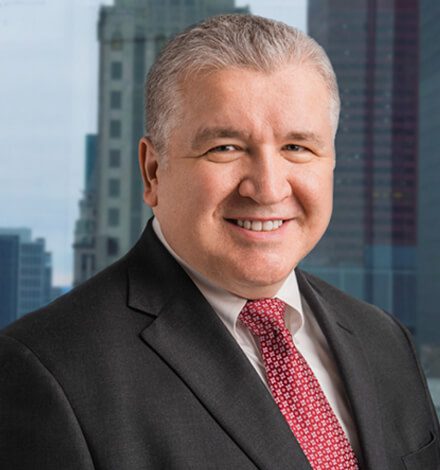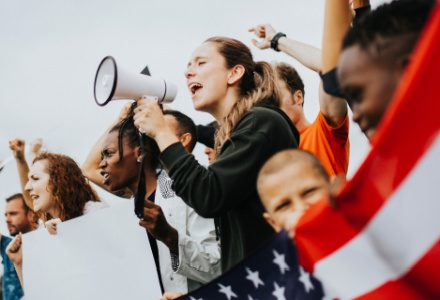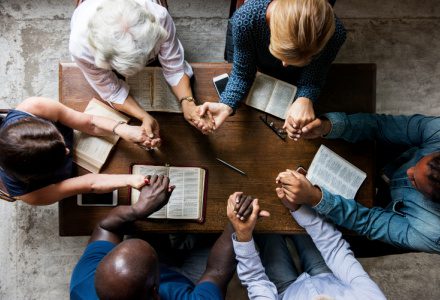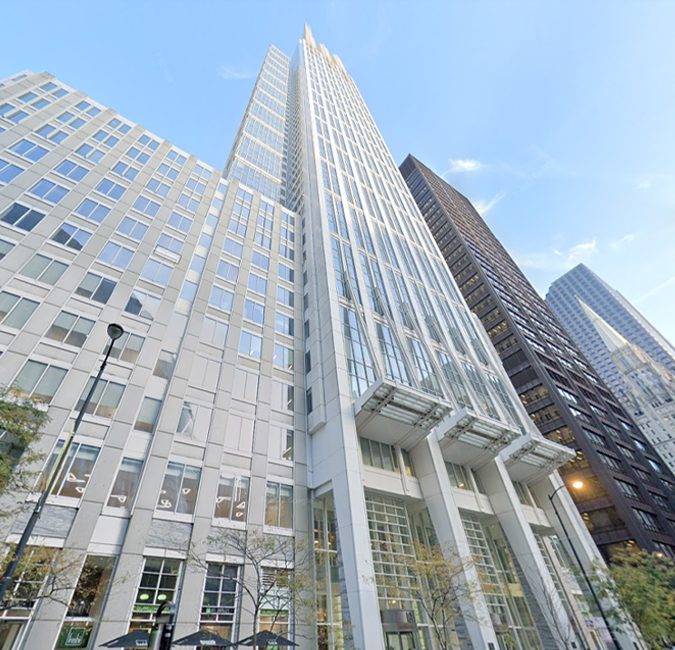Parents Have A First Amendment Right To Candidly Criticize School Boards
The Supreme Court has long recognized that parents have a fundamental right to control many aspects of their children’s upbringing. While a state may mandate that children receive an education, parents, for example, are free to enroll their children in private schools or enroll them in public schools. When a child is sent to a public school, the parents cannot completely control the curriculum taught and the manner in which it is taught, although a few important exceptions exist. Parents have the right to remove their children from certain lessons or classes, but overall, enrolling their children in a public school cedes to the local school district the education of their children.
Important decisions concerning what is taught in public schools and the books that can appear in a school’s library are made by local school boards whose members are elected by voters. School board meetings play a vital role in allowing parents and concerned citizens to express their agreements, disagreements, and thoughts to the members of the school board. While a school board can accept or reject the comments and advice made by parents, they cannot constitutionally censor what parents want to tell the school board’s members. Not all school boards want to accept this limitation and when they do censor comments, they violate the First Amendment rights of parents.
Parents do not lose their First Amendment rights when they step up to the podium at a school board meeting. School board meetings, however, are not venues in which any type of speech is permitted. A school board meeting serves certain specific functions, and a school board is permitted to implement rules that ensure the meeting can function. For example, the school board can limit the topics individuals can present to the school board and put time limits on how long attendees can speak. The limitations a school board imposes on the conduct of its meetings must be reasonable “in light of the purposes served” by the school board meeting. The First Amendment imposes significant limitations on the speech restrictions a school board can implement.
Some school boards, however, do not want to hear criticisms concerning their decisions or the operation of the schools falling within their jurisdiction. Other school boards have shown a willingness to prevent comments that some on the school board find politically distasteful. School boards typically have legal counsel and, as a result, do not implement policies that expressly restrict protected speech. Instead, some create vague and arbitrary speech limitations that are enforced in an arbitrary manner. These vague and arbitrary restrictions raise serious constitutional issues. First, they have a chilling effect on speech because it is not possible to know in advance what is actually prohibited. Second, members of the board can use vague and arbitrary policies to censor disfavored viewpoints. In Moms for Liberty v. Brevard Public School, a federal appellate court recently pointed out that “a policy is unreasonable if it ‘fails to define key terms, lacks any official guidance, and vests too much discretion in those charged with its application.’” The court went on to state that “a grant of unrestrained discretion to an official responsible for monitoring and regulating First Amendment activities is facially unconstitutional.”
In Moms for Liberty v. Brevard Public Schools, the plaintiffs challenged three practices implemented by the school board for the Brevard County Public Schools: (a) a prohibition on so-called “abusive” comments, (b) comments that are “personally directed,” and (c) obscene comments. The court held that the school board violated the First Amendment rights of parents with respect to these rules.
- Basic First Amendment Concepts
The First Amendment protects a wide range of speech in many different contexts. At one level, the First Amendment protects the need that people have to express themselves. At a very practical level, democratic governments cannot function without individuals having the freedom to discuss important political and social topics and to learn about such topics. The problem is that hearing contrary opinions is sometimes difficult. Many, if not most people, do not like being told they are wrong or presented with opinions and views they find distasteful. Many government officials feel the same way, but they oftentimes have the political power to silence those with whom they disagree.
Not every comment or utterance is entitled to protection under the First Amendment. For example, the First Amendment does not protect obscenity. Other categories of speech that are not protected include, for example, false, defamatory statements, actual threats, and speech that represents an immediate incitement of violence. These exceptions to the First Amendment are narrowly construed by courts. For example, the fact that some people will get upset by someone else’s comments does not justify the censorship of those views. Further, speech that makes someone or some group uncomfortable is not the heart of a true threat. Nor is censorship permitted because a majority or vocal minority vehemently detests the opinions held by others. Despite what many commentators, politicians, and celebrities say, the First Amendment protects so-called “hate speech,” offensive speech, rude speech, and many other types of speech most people will find extremely distasteful.
The First Amendment also recognizes that some limits on even protected speech are permissible under certain circumstances. For example, a local government can limit when noisy demonstrations can take place. A prohibition on demonstrating in a residential neighborhood late in the evening is permissible. Requiring a license to conduct a demonstration in a busy urban area is also permitted. Finally, a government entity can impose certain speech limitations with respect to the conduct of government meetings.
When a government agency, like a school board, schedules meetings that are open to the public, it can impose certain rules that are reasonably necessary to ensure that the meeting is able to accomplish its purpose. In Moms for Liberty v. Brevard Public Schools, the Eleventh Circuit issued an important decision addressing a school board that used vague and arbitrary policies to suppress viewpoints the school board did not like.
- Abusive Comments
The court first addressed the school district’s policy against what it called “abusive speech.” The school board did not provide any objective definition for the word “abusive.” Instead, what constituted “abusive” speech was left to the discretion of school board members. The facts developed in Moms for Liberty showed that this discretion was abused and led to not-so-subtle viewpoint discrimination. As the court put it: “No one likes to be called evil, but it is not “abusive” to use that term . . . [r]estrictions that bar offensive or otherwise unwelcome speech are impermissible, regardless of the forum in which the government seeks to impose them.” The court stated that a government entity cannot prohibit speech to protect the most squeamish listener and concluded that the “ban on ‘abusive’ speech is an undercover prohibition on offensive speech.” A school board “may not burden the speech of others in order to tilt public debate in a preferred direction.” The court then held that the defendants’ prohibition on “abusive” speech was facially unconstitutional under the First Amendment.
- The Prohibition on Personally Directed Speech
The school board had also prohibited the following: (a) comments that “questioned school board members individually,” and (b) comments that were personally directed against “anyone not on the” school board. The court held that both of these policies were unconstitutional.
The court held that the rule against questioning board members directly was a viewpoint-neutral restraint. This means that the prohibition was not based on the nature of the comment made to a school board member. The policy prohibited both positive and negative comments. The problem was that the school board did not apply this prohibition consistently. The court stated that evidence showed the school board applying this rule on some days and not others without any explanation of why. The inconsistent enforcement of the policy made its overall enforcement arbitrary. While a school board can implement reasonable speech restrictions, a prohibition that is so unclear and applied inconsistently is fundamentally unreasonable with respect to the First Amendment.
The policy against comments directed towards any person not a member of the board was more problematic. The school board could not explain how the policy was actually implemented. The person on the school board responsible for enforcing the policy could only provide what the court called a “muddled definition.” The court found that “[s]ometimes just mentioning someone’s name was enough to provoke interruption, but other times using a name was met with no resistance.” The court stated that “[s]uch unpredictable and haphazard enforcement is not reasonable [and] [i]nstead, it reflects no boundaries beyond the presiding officer’s real-time judgment about who to silence.” This type of indeterminacy opens the door to viewpoint censorship and chilling of speech.
Overall, the court could not find a nexus between the policy and its stated goals. The court did not accept the argument that this prohibition was needed to prevent disruption of a meeting or the incitement of other audience members. These concerns did not justify the broad and open-ended restraint implemented by the school board. There are certainly other more narrowly drawn rules that can address the problem of disruption and the incitement of violence. Giving a school board member an open invitation to silence any comments he or she does not like invites viewpoint censorship that is prohibited by the First Amendment. The court correctly held that the school board’s policy was facially unconstitutional.
- The School Board’s Policy Against “Obscenity” was Too Broad
Comments that are truly obscene are not protected by the First Amendment. This standard, however, is “exceptionally narrow.” Courts have developed a multi-part test to determine whether speech is obscene: (a) does the speech appeal to the “prurient interest,” (b) does the speech define sexual conduct in a “patently offensive way,” and (c) does the speech “lacks serious literary, artistic, political, or scientific value.” None of the speeches the school board censored came close to meeting this narrow exception. Instead, the school board used the prohibition on obscenity to shut down discussions on sexually explicit books found in its elementary schools.
The issue in the case was the school board’s instructing a parent to stop reading from a book found in one of the elementary school’s libraries. The passage in the book describes two people having sex in a school that a student happens to witness. The court first pointed to the obvious fact that the “content of books in school libraries is a matter of serious community interest.” The court then chided the school board for suggesting that it was improper for a parent to read out a passage from a book in a school board meeting because children were present when the book “is available to children in their elementary school library.” While legal rules can oftentimes raise complex issues, sometimes all that is really needed is a good measure of common sense.
The Moms for Liberty case shows the continued vitality of the First Amendment as a bulwark against government officials who do not want to hear unpleasant facts from the public. The very purpose of a school board meeting is undermined if a school board can implement rules that allow only speech that is laudatory towards the school board’s policies while silencing those who oppose the school board’s policies. School board meetings are a way for a school board to learn the opinions of community members, it is not supposed to become an echo chamber in which the school board wants to only hear how good a job it is doing.
The suppression of free speech by school boards threatens the foundation of open dialogue and accountability in our communities. It’s crucial for citizens to stand up against policies that silence dissenting voices and advocate for the protection of First Amendment rights. School board meetings must serve as forums in which parents can present diverse perspectives on what is going right, what is going wrong, and what changes need to be made by the relevant school board. If you believe that your local school board is limiting free speech during meetings, it’s important to take action. Contact the Law Offices of George M. Sanders, P.C., to schedule a consultation.
Previous Post
New York State’s Overreach On Limiting The Concealed Carrying of Handguns Once Again Expands Our Understanding of the Second Amendment
By 2020, over 40 states issued permits to carry a concealed handgun on a “shall issue” basis. Under “shall issue” laws, the state must...
NEXT Post
Parents Have A First Amendment Right To Candidly Criticize School Boards
The Supreme Court has long recognized that parents have a fundamental right to control many aspects of their children’s upbringing. While a state may...







